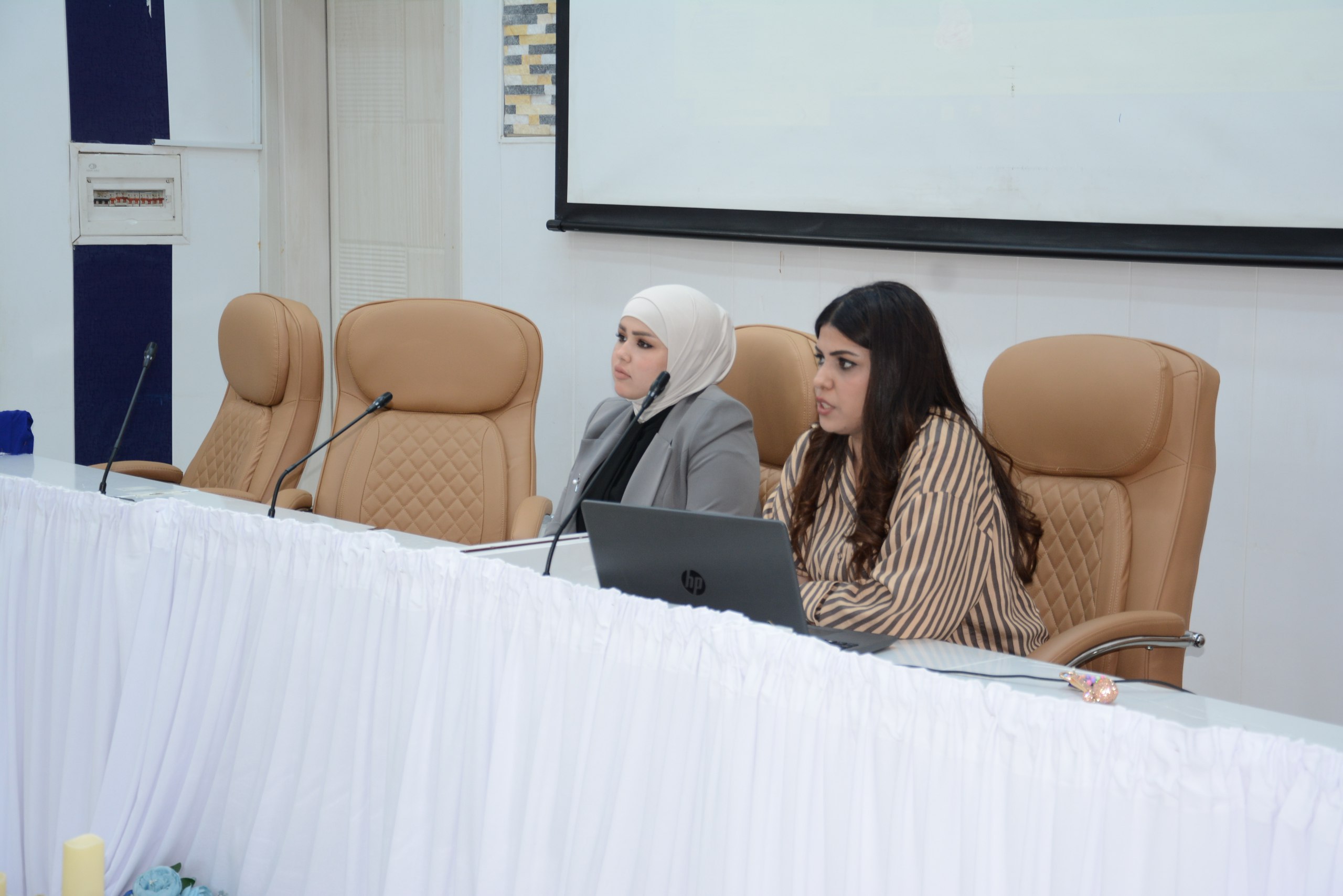The Scientific Affairs Unit at the College of Physical Education and Sports Sciences for Women / University of Baghdad held a scientific workshop entitled (Administrative Corruption and the Laws Governing It), presented by Asst. Lect. Noor Ali Kazem and Asst. Lect. Tuqa Tahseen Ali.
The presenters defined administrative corruption as any act that involves the misuse of public office to achieve personal or group interests through bribery or extortion. They also highlighted several types of corruption, including political, financial, administrative, and moral. Additionally, they explained the main reasons behind the spread of this phenomenon in society, which include educational and behavioral causes, economic factors, political circumstances, and legal shortcomings.
The lecturers also referred to the key laws regulating the fight against administrative corruption in Iraq, including:
– The Integrity and Illicit Gain Commission Law No. (31) of 2011 (amended) is considered one of the main laws combating administrative corruption.
– The Discipline of State and Public Sector Employees Law No. (14) of 1991 (amended), which governs employee conduct.
– The Iraqi Penal Code No. (111) of 1969 (amended) includes important provisions penalizing corruption-related crimes such as bribery, embezzlement, and abuse of authority.
– The Federal Board of Supreme Audit Law No. (31) of 2011, which strengthens oversight of public funds and financial management and identifies instances of waste and overspending in government expenditures.
– International conventions, such as Iraq ratifying the United Nations Convention against Corruption under Law No. (35) of 2007.
This workshop contributes to achieving two Sustainable Development Goals (SDGs): Goal 16 (Peace, Justice, and Strong Institutions), and Goal 4 (Quality Education).
